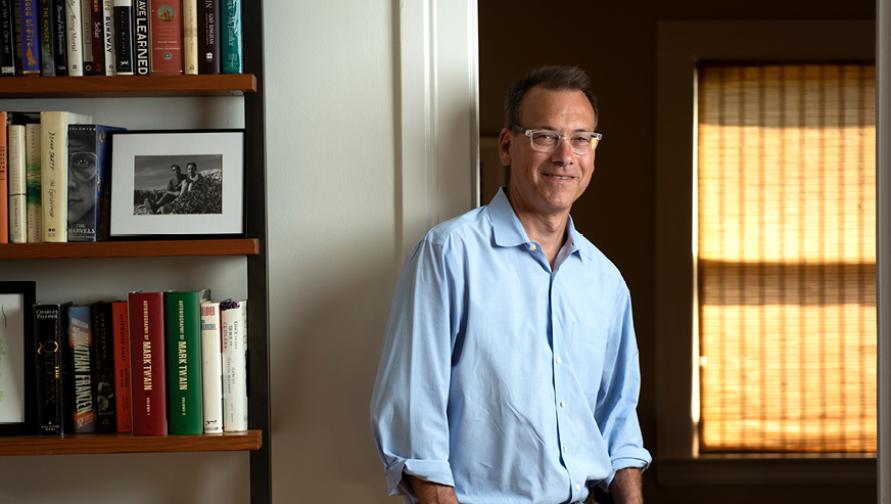
A Q&A with historian David Igler and writer Megan Cole
The Pacific Ocean — vast, ancient and eternal — may seem to exist beyond historical time. But for David Igler, professor of history at UCI, the sea is teeming with rich history. An acclaimed environmental historian, Igler has authored multiple books on the ecological histories of the American West and the Pacific Ocean — most recently, The Great Ocean: Pacific Worlds from Captain Cook to the Gold Rush (Oxford University Press, 2013). The book, Igler explains, “draws on hundreds of documented voyages — some painstakingly recorded by participants, some only known by archaeological remains or Indigenous memory — as a window into the commercial, cultural and ecological upheavals” that changed the eighteenth and nineteenth centuries.
Here, in anticipation of Earth Day, Igler discusses how thinking historically can help us better understand the ecological issues confronting the planet today.
What environmental issues are most important to you — both personally and in your academic work?
Well, from a personal perspective, I'd have to say climate change and global warming. Is there anything else remotely as significant given where we are now? But I'm not a climate scientist, so from an academic perspective, I would have to say something more closely related to my own research. For the past 20 years, I've been researching and writing about the Pacific Ocean. I've become increasingly interested in histories of scientific exploration and resource extraction in the Pacific, including issues related to marine mammals, species introductions, and the concept of scientific "discoveries" and knowledge production. I'm interested in where that knowledge originates, which frequently leads us to Indigenous groups rather than European scientists.
How did you first become interested in the environmental humanities? What drew you to the field?
The first book that awakened me to environmental history was William Cronon's Changes in the Land: Indians, Colonists, and the Ecology of New England (1983). I bet half of the environmental historians in the country (of my age!) would offer the same response. Cronon's book opened up a completely new perspective on not only colonial America, but also history itself — specifically, the ways human history is framed by ecological factors. Then I took a directed reading during my second year of grad school with one of the founders of the field of environmental humanities, Carolyn Merchant, and I was hooked.
What sorts of environmental history courses have you taught at UCI?
In one way or another, environmental history factors into all my course offerings at UCI. For instance, I'm currently teaching a large lecture class on colonial America and the course begins with a focus on the ways Indigenous groups managed their natural landscapes. It continues with a focus on natural resource extraction and the human labor — mostly enslaved labor — developed by colonial economies. I also teach an upper-division course on American Environmental History and an upper-division writing class centered on climate change. These classes have become more popular and relevant over time, and numerous colleagues in the department have also contributed to our environmental history curriculum, including David Fedman, Laura Mitchell, Sarah Farmer and others. Part of the attraction for students is current discourses about climate change, but they also have an awareness of many environmental issues that we didn't necessarily have back in the day.
Why is it important to study environmental history? How can environmental history help us tackle the ecological issues of the present?
First, I'd say it's important to study many different fields of history in order to appreciate the full scope of the discipline. Environmental history is wonderfully interdisciplinary due to its connections with the natural sciences, social sciences and even the arts. Can it help us tackle the ecological issues of the present? That's a very tall order to fill. But it gives us perspective on where we've been in the past and how we've fundamentally altered our interactions with natural systems. I'm hopeful that perspective can contribute to more positive outcomes in the future.
Igler is teaching History 40A, “Colonial America: New Worlds,” this spring 2022.
